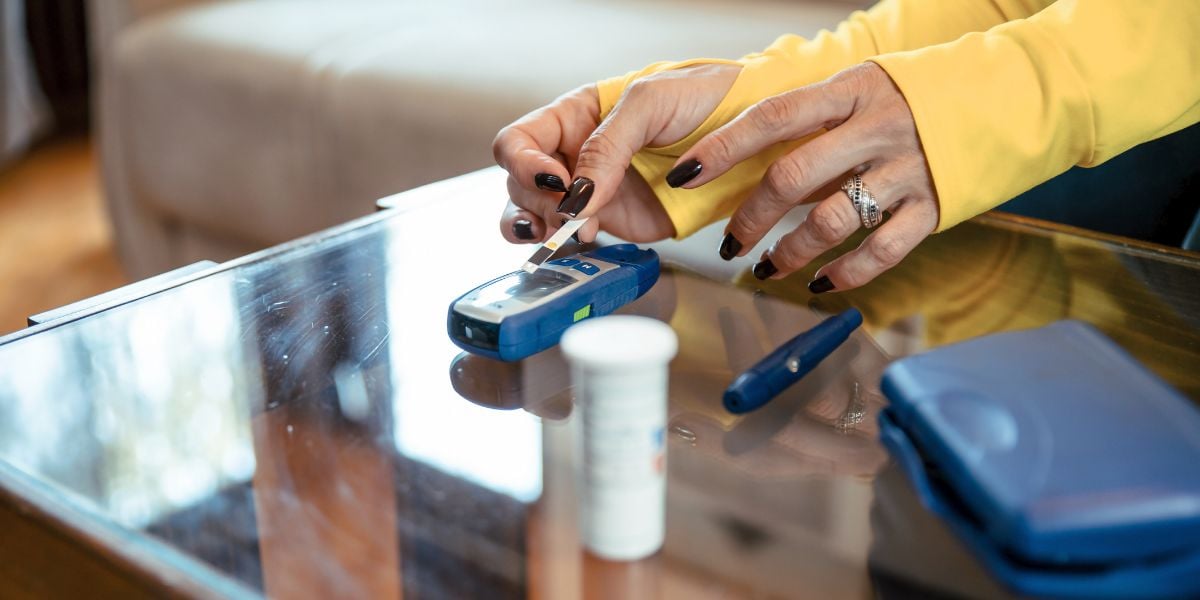Use this calculator to convert HbA1c to Average Blood Sugar Level The HbA1c level in your blood indicates what your average blood glucose level has been in the past 2 to 3 months.
Everyone, whether non-diabetic, pre-diabetic, type 1 diabetic or type 2 diabetic has some degree of sugar in their blood.
To convert between mg/dl and mmol/L, use our blood sugar converter You can then convert average blood glucose levels back to HbA1c units with the calculator below.
Recommended HbA1c ranges
The recommended HbA1c range for most with diabetes is to keep the value under 48 mmols/mol (under 6.5% in the old percentage units).
People at risk of hypoglycemia, or for whom such tight blood glucose regulation is not advised, may be advised to keep their HbA1c below 59 mmols/mol (under 7.5% in the old percentage units).
Because the two tests measure two different things, the calculator can only give an estimate and therefore there will always be some discrepancy between the value provided by the calculator and actual lab test results.
How accurate are the results?
The calculator looks to provide an estimate of what your HbA1c value may be based upon your average blood glucose results and vice versa. It’s important to note that HbA1c and blood glucose tests measure different things.
Blood glucose tests measure the concentration of glucose molecules in the blood at a single point in time.
The HbA1c test measures the proportion of haemoglobin molecules in the blood that have become chemically bonded with glucose over a period of up to 3 months.
However, the calculator serves as a useful guide which can give you a close indication of what your HbA1c result might be based on your blood glucose results?
What can I learn from converting my average blood glucose level to HbA1c?
Many people wish to calculate an estimate value of their HbA1c from their average blood glucose readings in preparation for an HbA1c lab result.
This can therefore give you the chance to prepare questions for your doctor or consultant prior to receiving your lab result.
What can I learn from converting my HbA1c to average blood glucose level?
Converting your lab test HbA1c to average blood glucose level can be useful to compare your own average blood glucose results.
If, for example, your own average blood glucose results are lower than the average provided by the calculator, this suggests you may not be testing during periods of the day when your blood glucose levels are higher, which could include after meals.
You may therefore wish to carry out more blood glucose testing at different times of day to see if you are experiencing high results that you may not otherwise be aware of.
Why was my HbA1c result higher/lower than the result given by the calculator?
In addition to the reasons given just above, there are some other practical reasons which may explain difference between the calculator’s estimate and your lab results. We will look at a few of the more common reasons for differences.
If you take a relatively high proportion of your blood glucose tests at the same time of day, eg upon waking, the HbA1c result the calculator gives will give a decent reflection of your early morning results but may not so well represent your blood glucose levels at other timers in the day.
Similarly, if you take more before meal, rather than after meal, readings, the HbA1c result given by the calculator will give a better reflection of your before meal results than after meal ones.
Typically, most people’s after meal results are higher than their before meal results, so if you take significantly more before meal results than after meal readings, you may find that the calculator gives you a lower result than your lab test result will.




